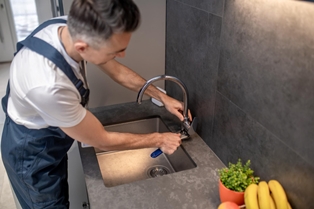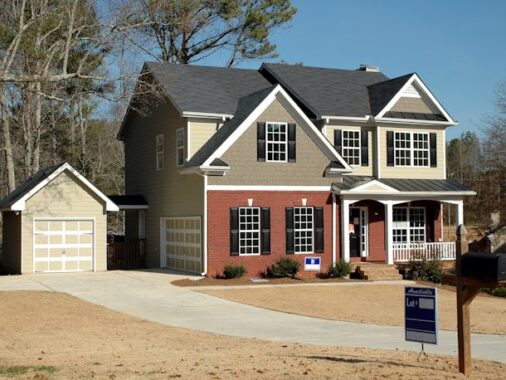In the realm of managing excess water on properties, various drainage solutions are available to address different needs and conditions. Understanding the characteristics of these solutions is crucial for property owners facing drainage challenges. From time-tested French drains to alternative options like surface drains and curtain drains, each solution comes with its own set of advantages and considerations.
Comparison of French Drains with Other Options:
French Drains:
French drains have been a reliable solution for managing water-related issues for many years. They are characterized by:
- Construction: Utilizes a trench filled with gravel and a perforated pipe, creating an underground channel for water redirection.
- Effectiveness: Proven effectiveness in preventing soil erosion by efficiently managing water runoff.
- Versatility: Suitable for a wide range of applications, including residential and commercial properties.
Surface Drains:
Surface drains offer a different approach, specifically designed for managing surface water. Here are their key features:
- Design: Engineered to collect water pooling on the surface and guide it towards a designated drainage point.
- Ideal Usage: Particularly effective on flat or slightly sloped surfaces where water tends to accumulate.
- Maintenance: Requires regular maintenance to prevent the buildup of debris and dirt, ensuring continued functionality.
Curtain Drains:
Curtain drains provide an alternative to both French and surface drains, focusing on subsurface water management. Their characteristics include:
- Composition: Comprises a trench filled with gravel or aggregate and a solid drain pipe, intercepting subsurface water flow.
- Effectiveness: Effective in redirecting and managing subsurface water, making them suitable for areas with high groundwater levels.
Choosing the right drainage solution depends on various factors such as the property’s topography, water accumulation patterns, and maintenance preferences. While French drains excel in versatility and effectiveness, surface drains and curtain drains offer specific advantages in managing surface and subsurface water, respectively.
Consideration of these factors in the context of your property’s unique needs will help you make an informed decision. Additionally, consulting with drainage professionals can provide valuable insights tailored to your specific situation, ensuring that the chosen drainage solution aligns seamlessly with your property’s requirements.
Factors to Consider When Selecting a Drainage Solution:
Property Characteristics:
Evaluate the unique features of your property, including its size, slope, and overall landscape. The topography plays a crucial role in determining the most suitable drainage solution.
Budget and Installation Costs:
- Assess your budget constraints and consider the installation costs associated with each drainage solution.
- French drains often involve higher upfront costs due to professional installation, while surface drains and curtain drains may offer more budget-friendly options.
Maintenance Requirements:
- Examine the maintenance demands of each drainage solution.
- French drains typically require minimal upkeep once installed, making them a low-maintenance choice.
- Surface drains may need more regular attention to prevent the buildup of debris and dirt.
- Curtain drains, though effective, may also require periodic maintenance.
Aesthetic Preferences:
- Aesthetic considerations are essential, especially for property owners who prioritize the visual appeal of their landscape.
- French drains, being underground, provide a discreet solution that may appeal to those seeking a less visible drainage option.
- Surface drains, while more visible, can be integrated into landscaping designs to minimize their impact on the overall aesthetics of the property.
Local Regulations:
- Before making a decision, be aware of local regulations and restrictions that may influence your choice of drainage solution.
- Some areas may have specific guidelines regarding the installation of certain drainage systems. Ensure that your chosen solution complies with these regulations.
Considering these factors collectively will help you make an informed decision tailored to your property’s specific needs. Remember that consulting with drainage professionals can provide valuable insights and ensure compliance with local regulations, contributing to the successful implementation of an effective and sustainable drainage solution for your property. By carefully weighing these considerations, you can select a drainage system that not only resolves existing issues but also aligns with your long-term maintenance preferences and aesthetic goals.
FAQs (Frequently Asked Questions)
French drains can be effective in various soil types, but it’s essential to consider factors such as soil permeability and drainage capacity.
While some alternative options can be DIY-friendly, it’s advisable to consult with a professional to ensure proper installation and optimal performance.
Yes, French drains can be integrated with surface drains or other drainage systems to enhance water management capabilities.
Factors such as property slope, soil type, budget, and environmental impact should all be taken into account when selecting the most suitable drainage option.
Conclusion
The choice between French drains and alternative drainage solutions depends on a careful consideration of various factors. Each option comes with its own strengths and weaknesses, making it essential to assess your property’s unique characteristics and your specific requirements. By understanding the comparative advantages of French drains, surface drains, and curtain drains, property owners can make an informed decision that not only addresses current drainage issues but also ensures long-term effectiveness and satisfaction. Consulting with drainage professionals can further enhance the decision-making process, guiding you towards the most suitable solution for your property’s needs. Ultimately, a well-chosen drainage system can contribute significantly to the longevity and functionality of your property.





